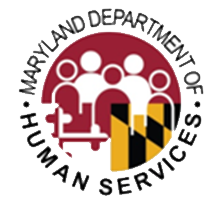
January 26, 2021
Media Contact: Katherine Morris
katherine.morris@maryland.gov
Maryland Department of Human Services Advises Eligible Marylanders To Utilize the Earned Income Tax Credit
Availability of federal and state tax credits serve as an additional lifeline for already overburdened low-and-middle-income Marylanders
BALTIMORE, MD – The Maryland Department of Human Services is strongly encouraging eligible Marylanders to take advantage of the Earned Income Tax Credit Benefit. Marylanders who made $57,000 or less in 2020 may qualify for both the federal and state Earned Income Tax Credits, as well as free tax preparation by the CASH Campaign of Maryland. Claiming the credits can reduce the tax owed and may also result in a larger refund.
The Earned Income Tax Credit (EITC) was first enacted on a temporary basis in 1975 as a modest tax credit that provided financial assistance to low-income, working families with children. Following various legislative changes over the past 40 years, the credit is now one of the federal government’s largest anti-poverty programs. Qualifying Marylanders who claim it on their federal return may also be entitled to a Maryland Earned Income Tax Credit on their state return equal to 50% of the federal tax credit. The Maryland EITC will then either reduce or eliminate the amount of the state and local income tax that individual owes.
“Given the compounding hardships of this past year, it is absolutely imperative that, under the leadership of Governor Hogan, we equip our struggling citizens with every conceivable lifeline available to them,” said Secretary Lourdes Padilla. “The Maryland Earned Income Tax Credit can provide some necessary breathing room, as at least one burden can be legitimately reduced.”
The CASH Campaign of Maryland and its partners are part of an IRS program to help prepare and electronically file qualifying Marylanders’ federal and state tax returns for free. IRS-certified staff check for tax credits like the Earned Income Tax Credit and help Marylanders get their refund quickly with direct deposit.
In response to COVID-19, residents must make an appointment to receive the free services by calling 410-234-8008, Monday-Friday from 9:00 am – 3:00 pm, and then choosing either the Virtual or Drop-Off tax prep services.
Those unsure as to whether they qualify for the tax credit may also use the IRS’s online EITC Qualification Assistant. Available in a number of languages, including a versión en Español, the online calculator helps determine whether an individual is eligible for the EITC, if they have any qualifying children or relatives, the estimated amount of their tax credit, and their filing status. The EITC Assistant does not ask individuals to provide sensitive information such as name, Social Security number, address or bank account numbers, and the information entered into the assistant will not be saved or recorded.
Additionally, if an individual’s earned income was higher in 2019 than in 2020, one can use the 2019 amount to figure their EITC for 2020. This temporary relief is provided through the Taxpayer Certainty and Disaster Tax Relief Act of 2020.
More information on EITC can be found online at the Comptroller of Maryland, the Internal Revenue Service (IRS), and the CASH Campaign of Maryland, or by calling the following:
- Maryland United Way Helpline at 211 or 1- 800-492-0618 (the TTY line is 410-685-2159)
- CASH Campaign of Maryland 410-234-8008 (Baltimore / Metro)
- Comptroller of Maryland, 1-800-MD-TAXES (1-800-638-2937)
- To find a Volunteer Income Tax Assistance (VITA) site offering free tax prep in your area, call 410-685-0525 or 1-800-492-0618, and the TTY line is 410-685-2159
The Maryland Department of Human Services (DHS) is the state’s primary social service provider, annually reaching more than one million people. Through its 24 local departments of social services, the agency pursues opportunities to assist people in economic need, provide preventive services, and protect vulnerable children and adults in each of Maryland’s 23 counties and Baltimore City. Additional information may be found at dhs.maryland.gov.
###